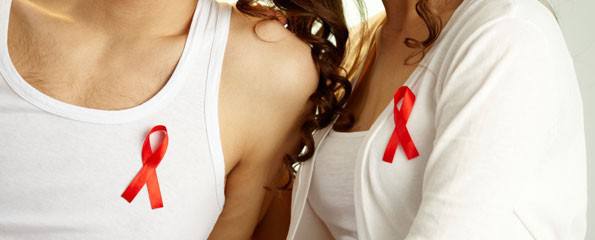HIV prevention drug: Low Risk, High Reward
In 2012 the HIV antiretroviral drug Truvada became the first and only medication approved by the FDA for HIV prevention. Led by Gladstone Institutes’ Investigator Robert Grant, MD, MPH, this research was hailed as an important step towards reducing the worldwide HIV/AIDS epidemic. Now, a new study provides further proof that regular Truvada use can reduce one’s risk for contracting HIV—without increasing sexual risk behaviour.
This research, published today in the online journal PLoS ONE, builds on the 2010 Global iPrEx clinical study, which reported that Truvada, an FDA-approved drug used for years to treat HIV-positive patients, could also prevent new infections in people likely to come in contact with the virus. Lending further support to Truvada’s efficacy, a 2012 follow-up study found that taking Truvada regularly reduced risk of HIV infection by more than 90%.
Questions about the drug’s real-world effectiveness remained, however, particularly concerning the issue of whether taking the drug could lead to a behavioural effect called risk compensation. Risk compensation is the notion that individuals adjust their behaviour in response to a change in their perceived level of risk—such as increasing exposure to the sun in response to sunscreen use. While iPrEx participants did self-report decreases in sexual risk behaviour over the course of the study, Dr. Grant and his team decided to examine those findings more closely, by studying biological markers of risk behaviour.
“After the initial iPrEx study, there was concern that self-reported behaviour may not tell the whole story,” said Dr. Grant. “Here, we not only gathered behavioural data, but we also tested each participant for both HIV and syphilis—allowing us to map over time how reported changes in overall behaviour correlated with actual changes in infection rates.”
The multi-year iPrEx study enrolled nearly 2500 men and transgender women in Peru, Ecuador, South Africa, Brazil, Thailand and the United States who were at risk for HIV infection. Half of the participants were given Truvada, while the other half were given a placebo. As part of the study, they also participated in regular counseling sessions. Unaware as to whether they were being given Truvada or the placebo, study participants were regularly asked whether they believed they were receiving Truvada—and whether they thought it was working.
“If risk compensation were occurring, those who believed they were receiving Truvada and that it was effective—whether or not they were actually receiving it—would be more likely to increase their sexual risk behavior,” explained Julia Marcus, PhD, MPH, the paper’s first author. “However, our results revealed the opposite: rates of both HIV and syphilis infections went down, and there was no increase in sexual risk behavior.”
“The research team’s findings should help to minimise reluctance to embrace Truvada over fears that it could actually lead to increased risk and more infections,” said Jeffrey Crowley, distinguished scholar at the O’Neill Institute for National and Global Health Law at Georgetown University and former director of the White House Office of National AIDS Policy. “This study reinforces the importance of drugs like Truvada as one component of a comprehensive plan for supporting people living with HIV and—importantly—preventing others from becoming infected.”
(Source: Gladstone Institutes, PLoS ONE)
Dates
Created by:

 Login
Login














